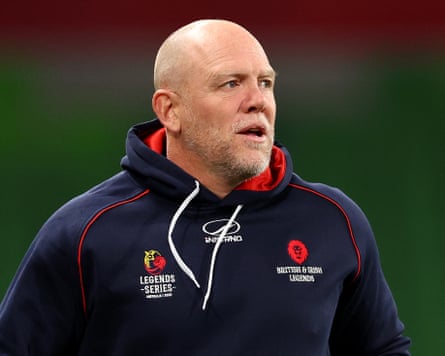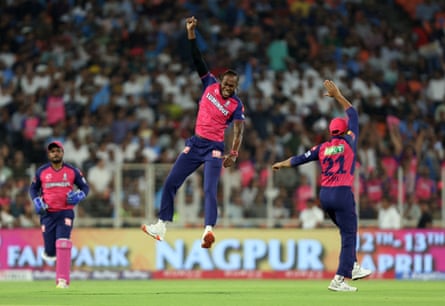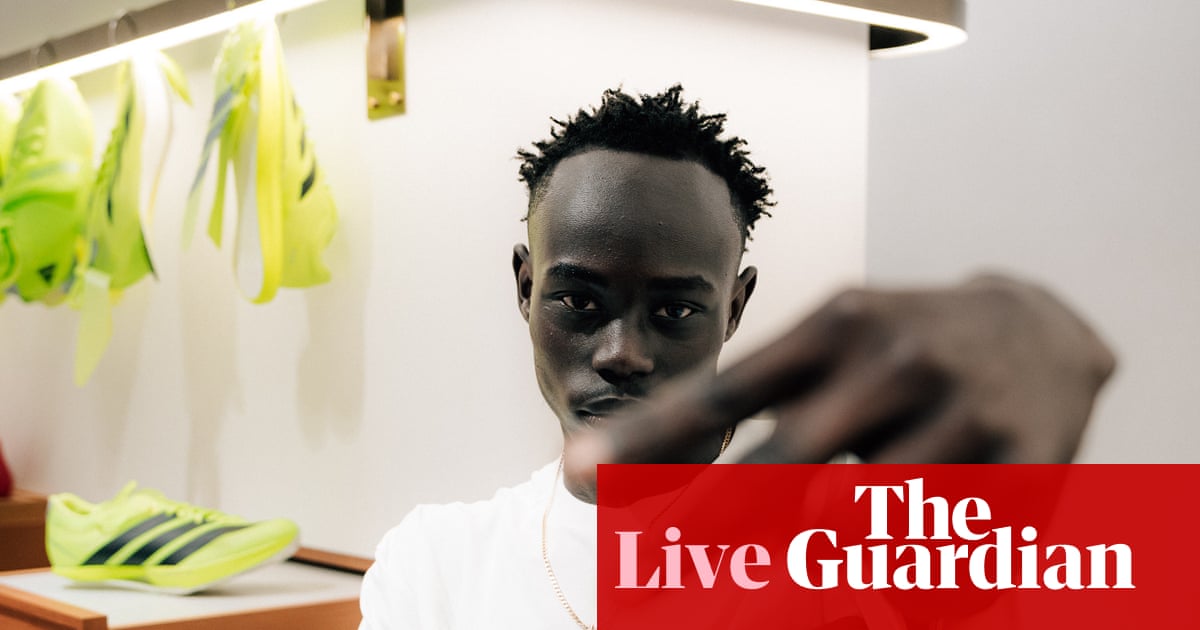R360’s decision to withdraw its application for sanctioning by World Rugby this month, as revealed by the Guardian, was the first significant setback for the planned breakaway league, which had appeared to be developing unstoppable momentum.
More than 160 players have signed pre-contract agreements with the proposed new competition, which is offering annual salaries of up to £740,000 for a 16-match season, with 75% of the potential recruits having played international rugby within the past two years, and at least 10 of them for England.
Despite this, R360 decided to defer its application for sanctioning after it became clear it would be unable to answer all the governing body’s questions before the World Rugby council meeting in Dublin on 23 September. In response, the co-founder Mike Tindall released a video in which he claimed it is “very much game on” for the new competition to launch in October next year.
However, gaining World Rugby approval at its next council meeting in June will be just the start for R360, which is under the microscope about whether the proposition stacks up financially. About 40 leading internationals have been promised the top £740,000 salary, including some from other codes such as the rugby league stars Roger Tuivasa-Sheck and Ryan Papenhuyzen, offers that will incur huge start-up costs and require immediate and significant revenue generation.
R360 has secured seed-funding from the Switzerland-based investment company Albachiara Group, but will require further investment moving forward. An R360 sales deck sent to potential investors, obtained by the Guardian, provides some insight into the extent of the project’s ambition and the likely business plan. When contacted by the Guardian, R360 sources described the deck as an early document and said the financial projections have changed, although it still provides a fascinating insight into its methodology.

In its sales pitch R360 forecasts revenues of £275m in its first year based on current dollar-sterling exchange rates, rising to turnover of £540m after five years, a projected income stream that seasoned sports investors have dismissed as outlandish.
“It’s crazy to think they can do this,” one investor says. “In the last 25 years the only start-up competitions that have generated more than £100m a year are the Indian Premier League, Sail GP and Formula E. It’s not going to happen.”
According to the deck, R360’s projections are based on bringing in about £180m in ticket sales in its first season, which will require a combination of large crowds and high prices, both optimistic for a start-up. A senior executive at Twickenham questioned whether R360 can sell the tens of thousands of tickets required at premium prices, and offered a cautionary tale.
“We have the best players in the world at Twickenham every summer playing for the Barbarians against international opposition, and struggle to sell tickets,” the executive said. “It’s not just about star players. Fans want to watch games that have real meaning, history and rivalries, not just big names running around. I really think R360 are underestimating the size of the challenge.”

R360 does not appear to be underestimating its future income streams to investors, even if the deck was essentially a sales pitch.
Revenue of £35m and £31m respectively is forecast from hosting fees from venues and media rights, with the latter figure seemingly dependent on securing advertising revenue, as R360’s broadcast strategy appears to be streaming matches for free on YouTube. R360 sources would not comment on potential media partners, but said the underlying ethos of the project was to make the competition available free-to-air to attract as many eyeballs as possible.
R360 is also banking on major cash injections in the form of franchise fees. The original pitch said the tender process under way will yield £60m this year in down payments from the 12 franchises, followed by further fees of £25m in 2026 and 2027, £55m in 2028, and £40m in 2029 and 2030.
The tender is due to completed by the end of this month, with bidders asked to pay about £25m for one of the eight men’s franchises, and up to £10m for one of the four women’s teams. Both competitions will ultimately expand to take in more franchises, but matches will remain capped at a maximum of 16 each season to ease player workload, significantly less than the limit of 30 club games-per-season agreed by the Rugby Football Union and Premiership Rugby.
Liverpool’s owner, Fenway Sports Group, and the Glazer family are among those reported as being interested in buying franchises. The Guardian has learned that Red Bull was offered the opportunity to buy a franchise, but dismissed the opportunity to focus on buying Newcastle Falcons.
after newsletter promotion
R360 was initially predicting profits of almost £10m in its first year, rising to £32m by 2030. R360 sources said this week that it was now aiming to be profitable by its third year, which would still be a significant achievement.
The size of the challenge facing R360 is perhaps best shown by the fate of other new competitions. Even the commercial juggernaut that is the IPL, which entered an empty global market for franchise competitions in 2008 with the unique advantage of selling to India’s 1.45 billion cricket-loving population, made a profit of only £4.21m in its first year in 2008 on revenues of £54m.
Other start-ups have fared less well, most notably LIV Golf, which still appears to be losing cash four years after launch. In its most recently published accounts, for 2023 – the third year of operations, which R360 is targeting for profitability – LIV recorded losses of £291m.

As a challenger event whose business plan is based on poaching global stars from long-established competitions, the comparison with LIV appears salient for R360, particularly given its difficulties in the broadcast market. LIV’s 2023 financial results reveal broadcast rights income of only £2.2m for its third season, a fraction of the £31m R360 was originally forecasting in its first year, while it will not have the vast resources of Saudi Arabia’s Public Investment Fund as protection from commercial realities.
Such is R360’s determination it has even expressed confidence of being able to launch next year without World Rugby sanctioning, which although theoretically possible would make life difficult. It is unclear whether proposed venues would sign contracts in defiance of the governing body, while recruiting players may also be far more complex.
The pre-contract agreements signed to date are essentially expressions of interest, giving players the option to withdraw at any point, while R360 will also need approval from individual unions to launch. While some of the smaller nations may grant their blessing, there is little chance of the RFU doing so, as it is just about to enter the second season of the eight-year professional game partnership governing player release with Premiership Rugby, which would be decimated by the new competition.
With so many hurdles to overcome the prospect of R360 launching next September as planned feels remote, although further delays may not be the end of the world for those involved, with the executive team of 10 already drawing salaries.
An index to the initial sales deck shows a budget of £1.3m has been allocated to executive pay and recruitment. If sufficient investors buy in, the R360 project could prove lucrative for some, even if a ball is never kicked.

.png) 2 hours ago
1
2 hours ago
1

















































